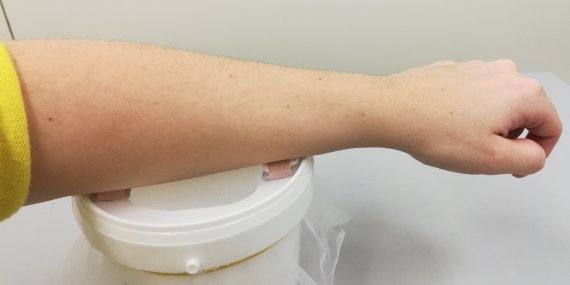Female mosquitos have a lust for blood. They need the blood in order to lay eggs. The mosquito species Anopheles coluzzii has a preference for humans, or more accurately for some humans. PhD candidate Marieke de Swart is investigating why that is. For good reason as the coluzzii is one of the main vectors (carriers) of the malaria parasite.
Sweat
It has been known for some time that mosquitos are fussy and find some people more attractive than others. Sweat and bacteria that turn the sweat into volatile substances that appeal to mosquitos have a role in this process. ‘But that still doesn’t tell us why. So I am concentrating on the role of the blood itself. It seems as if some people’s blood is better suited for laying eggs than other people’s blood’. The question is what causes this.
Her search is focusing on the role of amino acids. ‘We know that some amino acids are necessary for the egg laying. Perhaps mosquitos have a preference for blood with higher concentrations of those amino acids, which they detect in some fashion.’ De Swart is also working with Radboud University to investigate whether the immune system plays a part. ‘We are looking to see whether differences in resistance are connected to the attractiveness to mosquitos.’
But it all depends on getting enough test subjects. De Swart needs 50 non-smoking, healthy men aged 18-65 who are not overweight (BMI<25). She wants men because women have more variation in odour because of the menstrual cycle. That variation complicates the study. The men will have to donate blood and sweat, and serve as food for 20 hungry female mosquitoes in four sessions of 15 minutes each.
It seems as if some people’s blood is better suited for laying eggs than other people’s blood
Marieke De Swart
Torment
That involves resting your forearm on a bucket full of mosquitos. So you need to be OK with mosquito bites. De Swart will initially be recruiting her test subjects on campus. The reward for this torment is 100 euros, plus the knowledge that you are doing it for a good cause. Malaria is still a disease with a lot of victims world-wide. It should be said that the mosquitos used in the experiments are, of course, not infected with malaria.


 Photo: Laura Mommers
Photo: Laura Mommers